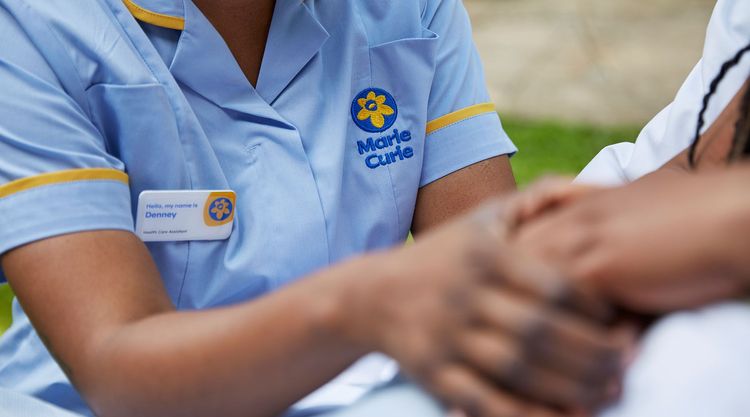Evaluating the benefit of a hospice paracentesis service for people living with advanced cancer: a qualitative study of service users
Marie Curie Internal Small Grant Scheme
Duration: 12 months
Duration: 12 months
Researchers
Anna Collison
Co-Lead Investigator
Registered Nurse, Marie Curie
Dr Sarah Fradsham
Co-Lead Investigator
Consultant, Marie Curie
Lay abstract
Background
At Marie Curie Hospice, Liverpool we currently support people living with advanced liver disease. This disease can often cause fluid (called ascites) to collect on the tummy (also known as the abdomen), causing them to get bigger and swell. A swollen tummy with ascites can cause problems, such as breathlessness nausea, pain and, when severe, can stop body organs from working properly, for example the kidneys and lungs. This can often be worrying for a person and their loved ones and can worsen their quality-of-life. Doctors and nurses remove the ascites fluid using a procedure called paracentesis, where a tube is connected to the tummy to drain fluid. Usually, patients need to attend a hospital to receive this procedure; however, Marie Curie Hospice, Liverpool offers this service meaning hospital admission is prevented.
The need for the paracentesis service at our hospice is increasing with growing demands on the NHS as more people living with advanced liver disease need fluid drained from their abdomen. Therefore to improve and expand our service we are conducting this research study to learn from people living with advanced liver disease about their experiences of attending a hospice for drainage of abdominal fluid. We will interview people accessing our service to help us understand the challenges to offering this service.
Aim
We hope that this work will help us to understand any areas of our service which need improvement. We also believe this work can help us expand our service and will help other hospice settings set up similar services in their locality. Ultimately, we want to improve quality and access of the service that we are offering to people living with advanced liver disease.

